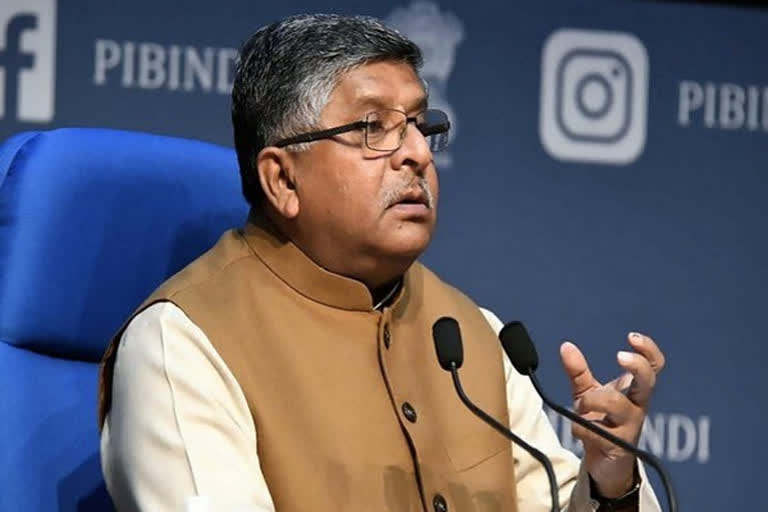New Delhi: The Union government last year ordered the removal of over 9,800 websites and social media handles to block any malicious content that may endanger public order and lead to incitement for the commission of cognizable offences, said information and technology minister Ravi Shankar Prasad. The minister, however, asserted in the Lok Sabha that the government values freedom of expression and it has no plans to regulate social media.
In response to a question by Deepak Baij, a Congress MP in the Lok Sabha, Ravi Shankar Prasad clarified that under Section 79 of the Information Technology Act of 2000, social media platforms and intermediaries are exempt from the liability of any user-generated content on the platform provided they follow certain due diligence and remove objectionable content.
"Under this provision, 9849 URLs, accounts and webpages, mostly on social media platforms, were blocked during the year 2020," Ravi Shankar Prasad informed the Lok Sabha.
Social media cannot be used to defame, promote terror
Prasad said while the Government values freedom of speech and expression and welcomes criticism and people to ask questions on social media but these platforms cannot be used to defame people or promote terrorism.
The freedom of expression guaranteed under Article 19(1) is also subject to reasonable restrictions under Article 19(2) of the Constitution, said the minister.
Also read: Parliamentary panel questions legality of new guidelines for OTT, social media platforms
“It is equally important that social media should not be abused or misused to defame, promote terrorism, rampant violence and compromise the dignity of women,” Prasad told the Lok Sabha members.
Prasad said it was for these challenges that the intermediaries are expected to remove and disable content when it is brought to their knowledge either through court order or through a notice by appropriate government.
No proposal to appoint social media regulator
Prasad said in order to provide enhanced user safety and ensure accountability of social media platforms, the government has issued new intermediary and digital media ethics guidelines under the IT Act.
He said new guidelines will be applicable to all intermediaries including social media giants and they are required to develop a robust grievance redressal mechanism.
Prasad, however, clarified that there was no proposal before the government to appoint a regulator for social media.
Increased compliance for social media giants
The Union government last month notified the Information Technology (Intermediary Guidelines and Digital Media Ethics Code) Rules, 2021, which require social media giants to appoint chief compliance officers and grievance officers which will be resident in India in case of large intermediaries.
Under the new guidelines released on February 25, the safe harbour under section 79 of the IT Act will not be applicable to social media giants if they do not follow the due diligence in removing the malicious and harmful content from their platforms.
Under the new rules, tech giants, categorised as significant social media intermediaries, will have to follow additional due diligence by appointing a chief compliance officer that will be resident in India, appoint nodal officers for dealing with law enforcement agencies and resident grievance redressal officers to resolve the problems faced by Indian users.
Also read: OTT and SM regulations: Experts support crackdown on 'objectionable content'
These big social media companies will also have to publish a monthly compliance report.
According to some estimates, Facebook has 41 crore users in the country, followed by Instagram (21 crore) and Twitter (1.75 crore) users.
Govt curbs the power to de-platform
The new guidelines also curtail the power of social media platforms to de-platform a user without providing him/her with an opportunity to raise grievances.
“Often it has been seen that a user who has spent his time, energy and money in developing a social media profile is left with no remedies in case that profile is restricted or removed by the platform without giving any opportunity to be heard,” the government had said in the new guidelines.



